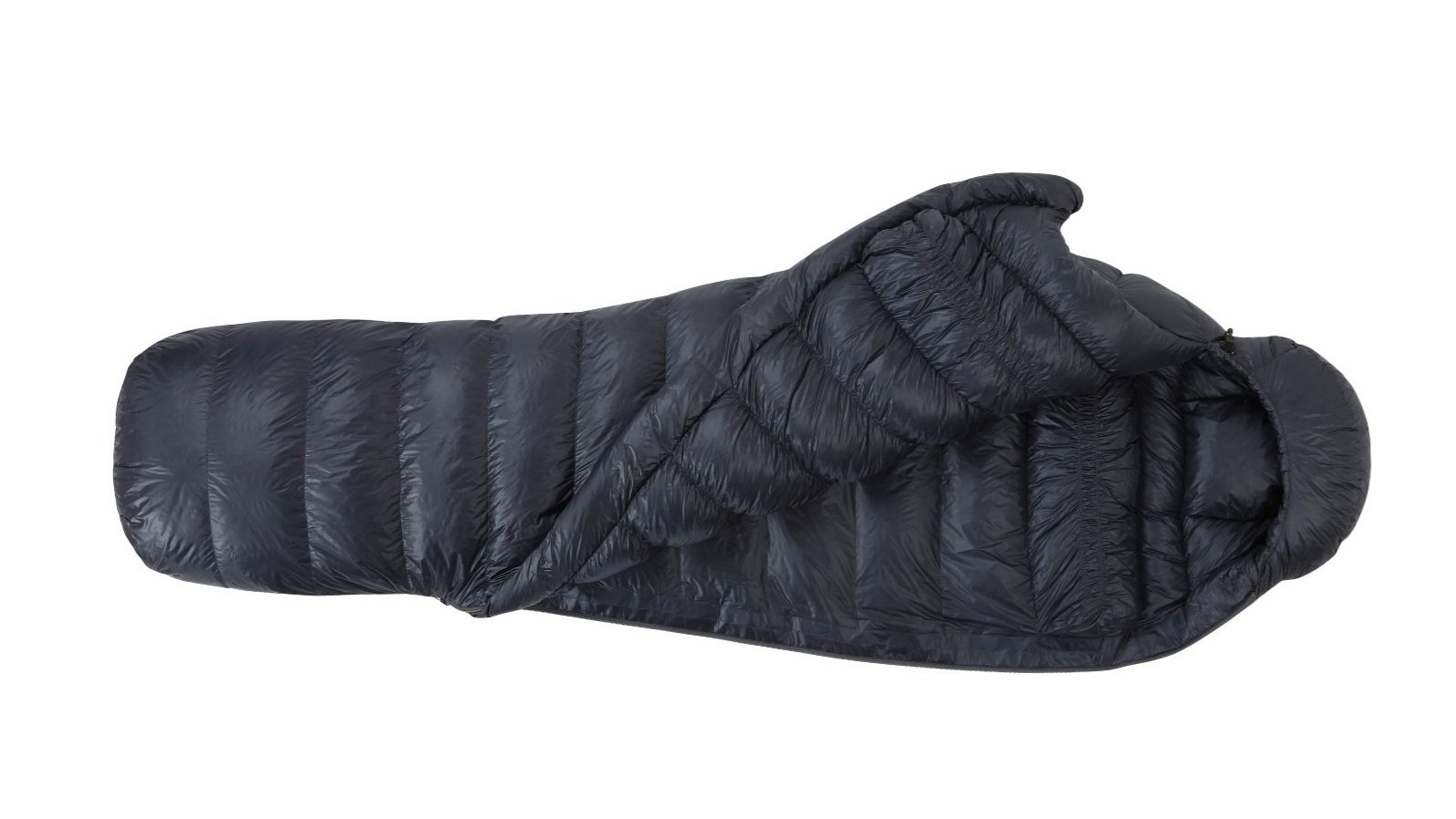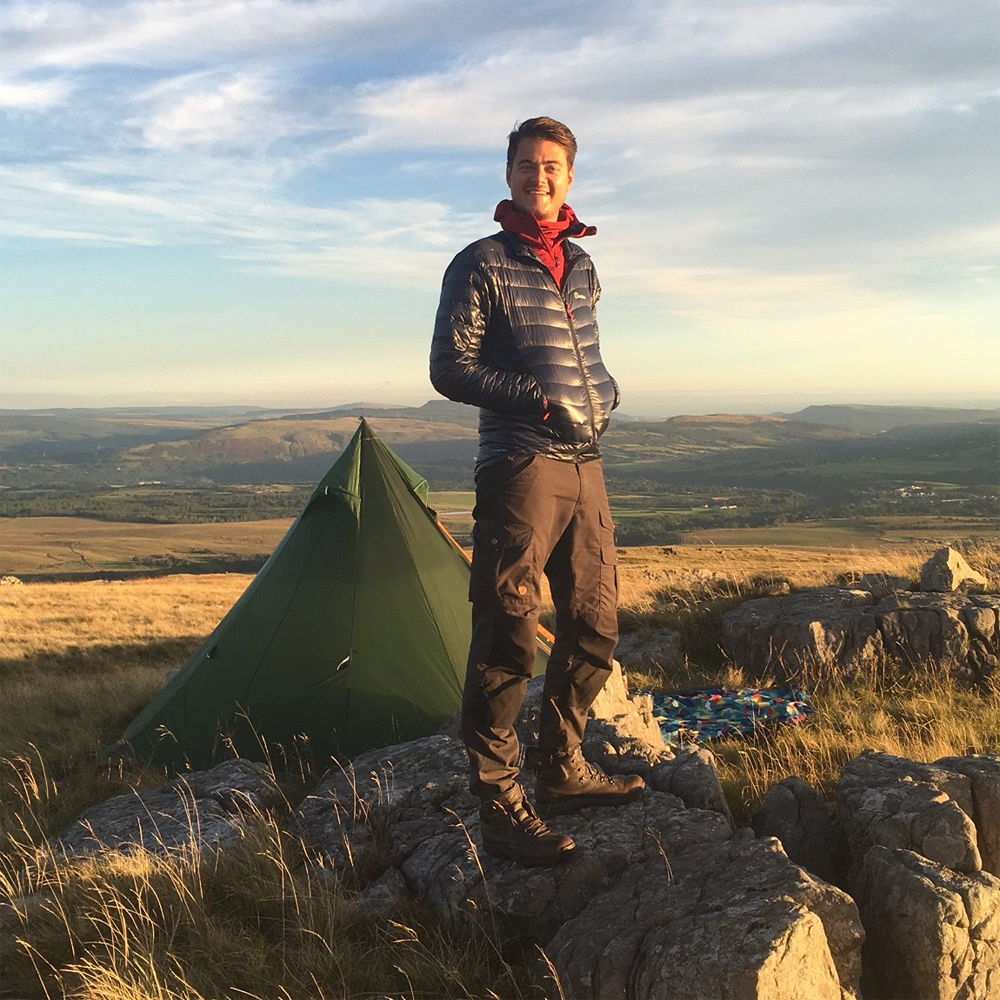Advnture Verdict
This premium lightweight down bag has a compact pack size but lofts well, making it a cosy companion for wild camping and backpacking from late spring to early autumn.
Pros
- +
Lightweight
- +
Warm
Cons
- -
Expensive
- -
Down fill not hydrophobic
You can trust Advnture
First impressions
The Mountain Equipment Firefly is a superb example of the brand's meticulous attention to detail. It is a very lightweight bag – in fact, at 560g/1lb 4oz this is about as light as two-season bags get without venturing into extreme ultralight territory, which typically comes with compromises in both durability and functionality.
But the Firefly has everything you’d expect, including a full-length two-way zip, backed with a draughtproof baffle, plus an excellent drawcord hood and ergonomically shaped footbox. The insulation is premium 800 fill power goose down, housed in a box-wall construction for maximum thermal efficiency.
- Explore the best sleeping bags in our buying guide
- Get a comfortable night's sleep with the best sleeping pads
- Got everything you need? Check our camping checklist
The face fabrics are admittedly lightweight, but they are at least ripstop nylon, so still promise decent durability. Warmth is boosted by the bag’s EXL Alpine fit, which uses elasticated inner chambers to bring the down fill closer to your body and eliminate dead space inside the bag. This means that the Firefly should keep you toasty down to -3°c (27°F).
• RRP: $450 (US)/£360 (UK)
• Weight: 560g/1lb 4oz (regular) 600g/1lb 5oz (long)
• Length: 190cm/75in (regular) / 205cm/81in (long)
• Max user height: 185cm/6ft 1in (regular) 200cm/6ft 6.5in (long)
• Pack size: 25x19cm/9.8x7.5in
• Fill: 800FP goose down (93/7)
• Comfort: 2°C/36°F limit: -3°C/27°F
• Compatibility: 2-season
In the field
We tested the bag in the hills of Snowdonia in late summer and were never cold, even when wild camping at higher elevations. We’d certainly be confident that the Firefly would match the manufacturer’s temperature ratings, and possibly exceed them if you are a warm sleeper.
We were careful to keep the bag dry, by packing it inside a drybag in our packs and making sure it wasn’t taken outside the tent. That’s because, like all down bags, The Firefly’s Achilles’ heel is wet weather performance – and unlike some rivals, the down is not hydrophobic, meaning it has not been treated with a DWR (durable water-repellent) coating.
That’s a conscious decision on Mountain Equipment’s part, since the brand is dubious about the long-term effectiveness of such treatments. So, we wouldn’t necessarily consider it a drawback of this bag, and in any case, the face fabric is DWR-treated, which does help to prevent damp seeping in.
Compared to the highly tapered and restrictive design of many ultralight bags, the Firefly is extremely comfortable. In particular, the contoured shark’s-fin footbox and a multiple-panelled hood cradle the feet and head very snugly indeed. That EXL fit is also highly effective at increasing the sensation of cosy, enveloping warmth, though the elasticated seams feel a little strange at first.
All the latest inspiration, tips and guides to help you plan your next Advnture!
Still, they also add a little stretch that makes sleeping on your side much easier. We also liked that long, two-way zip, which means it is easy to get in and out of the bag, as well as affording the ability to vent heat on warmer nights.
An outdoors writer and editor, Matt Jones has been testing kit in the field for nearly a decade. Having worked for both the Ramblers and the Scouts, he knows one or two things about walking and camping, and loves all things adventure, particularly long-distance backpacking, wild camping and climbing mountains – especially in Wales. He’s based in Snowdonia and last year thru-hiked the Cambrian Way, which runs for 298 miles from Cardiff to Conwy, with a total ascent of 73,700 feet – that’s nearly 2½ times the height of Everest. Follow Matt on Instagram and Twitter.


